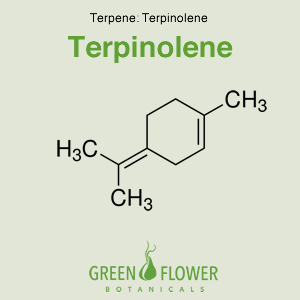
Terpene – Terpinolene
Description:
EFFECTS: Anti-bacterial, Anti-cancer, Antioxidant, Sedative.
Strains containing Terpinolene include: Durban Poison.
Terpinolene is a common terpene primarily isolated from trees. It is present in high amounts in terpintine. Terpinolene also goes by the name delta terpinene.
Terpinolene is not an analgesic or an anti-inflammatory, yet most cannabinoids and terpenoids are one of the two or both.
Terpinolene was concluded to be effective against several species of bacteria. Terpinolene is able to increase total antioxidant capacity levels in white blood cells without changing the total oxidative stress level. Terpinolene is further effective in fighting glial cell cancer and leukemia.
⇩ View A – Z Index of Terpenes ⇩
Effects
Anti-bacterial
Anti-cancer
Antioxidant
Sedative
Research
Antibacterial
Terpinolene was elucidated to be toxic against, Bacillus subtilis, Staphylococcus aureus, Staphylococcus epidermidis and Escherichia coli through the disk susceptibility test minimum inhibitory concentrations measurements in a couple studies.
- Essential oil composition and antimicrobial activity of Diplotaenia damavandica.
- Chemical composition and antibacterial activity of essential oil of Heracleum rechingeri Manden from Iran.
- Antimicrobial activity of the major components of the essential oil of Melaleuca alternifolia.
Anti-oxidant
Genotoxic, oxidative and cytotoxic effects of terpinolene were explored with white blood cells. Genotoxicity was evaluated by micronucleus assay, sister chromatid exchanges assay, and 8-oxo-2-deoxyguanosine measurements. Cytotoxicity was detected by lactate dehydrogenase release and MTT assay. All assays were negative. Terpinolene treatment showed statistically significant increases of total antioxidant capacity levels in the cells without changing total oxidative stress levels. This antioxidant effect was also seen in preventing the oxidation of low density lipoprotein, which is helpful in combatting heart disease.
- Genotoxic and oxidative damage potentials in human lymphocytes after exposure to terpinolene in vitro
- The monoterpene terpinolene from the oil of Pinus mugo L. in concert with alpha-tocopherol and beta-carotene effectively prevents oxidation of LDL.
Sedative
Nasal transmission of terpinolene was concluded to induce sleep in mice. Oral administration may prove more potent.
Anti-cancer
A key protein involved in progressing cancers, RAC-alpha serine/threonine-protein kinase, was shown to be reduced in leukemia cells with the treatment of terpinolene. Also brain cancer cells were shown to be significantly affected by the terpene as well, and no signs of genetic damage were seen in the normal cells.
CBD Oils Containing Terpinolene
- Sale!

ACDC Strain 900mg CBD – 30mg/ml -Hemp Derived Cannabis Oil – 30ml
Original price was: $55.95.$41.96Current price is: $41.96. Learn MoreRead more
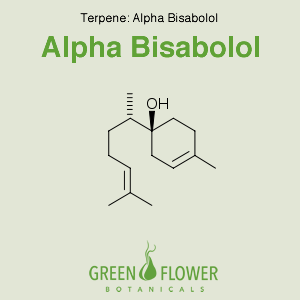
Alpha Bisabolol
EFFECTS: Analgesic, Anti-cancer, Anti-inflammatory, Antifibrosis, Antifungal, Antocoagulant, Drug Potentiator.
Learn about Alpha Bisabolol »
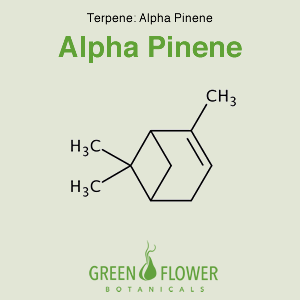
Alpha Pinene
EFFECTS: Anti-bacterial, Anti-cancer, Anti-inflammatory, Bronchodilator, Memory Enhancer.
Learn about Alpha Pinene »
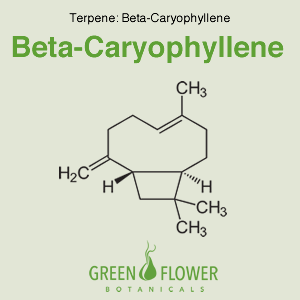
Beta Caryophyllene
EFFECTS: Analgesic, Anti-inflammatory, Antioxidant, Gastric-protective.
Learn about Beta Caryophyllene »
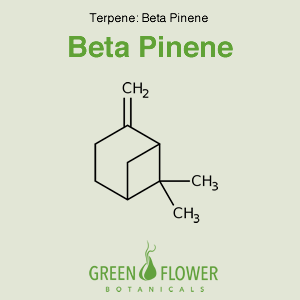
Beta Pinene
EFFECTS: Expectorant, Bronchodilator, Anti-inflammatory, Antiseptic.
Learn about Beta Pinene »
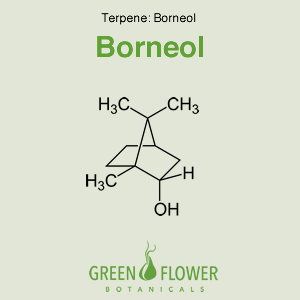
Borneol
EFFECTS: Analgesic, Anti-cancer, Anti-inflammatory, Antifibrosis, Antifungal, Antocoagulant, Drug Potentiator.
Learn about Borneol »

Camphene
EFFECTS: Hypolipidemic, Anti-bacterial, Antifungal.
Learn about Camphene »
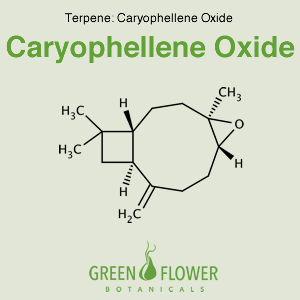
Caryophyllene Oxide
EFFECTS: Antifungal, Antocoagulant.
Learn about Caryophyllene Oxide »
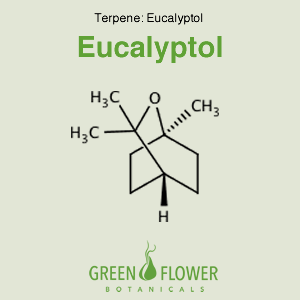
Eucalyptol
EFFECTS: Anti-Alzheimer's, Anti-Asthma, Anti-bacterial, Anti-cancer, Anti-inflammatory, Antioxidant.
Learn about Eucalyptol »
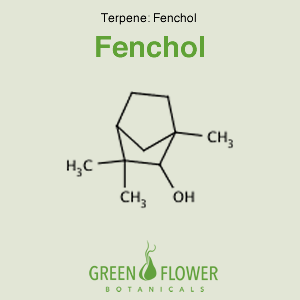
Fenchol
EFFECTS: Antioxidant, Antimicrobial, Antifungal.
Learn about Fenchol »
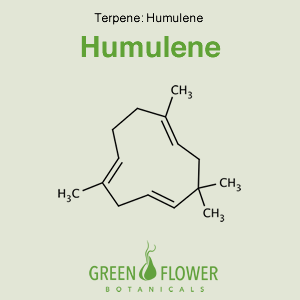
Humulene
EFFECTS: Anti-bacterial, Anti-cancer, Anti-inflammatory.
Learn about Humulene »
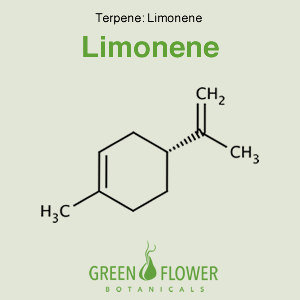
Limonene
EFFECTS: Anti-anxiety, Anti-cancer, Anti-inflammatory, Antidepressant.
Learn about Limonene »
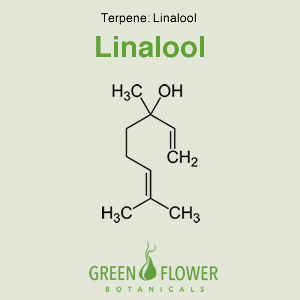
Linalool
EFFECTS: Analgesic, Anti-anxiety, Anti-inflammatory, Anticonvulsant, Sedative.
Learn about Linalool »
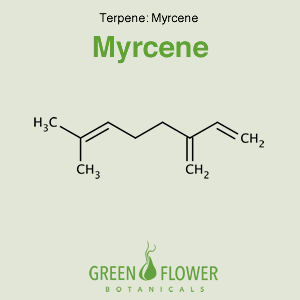
Myrcene
EFFECTS: Analgesic, Antioxidant, Sedative.
Learn about Myrcene »
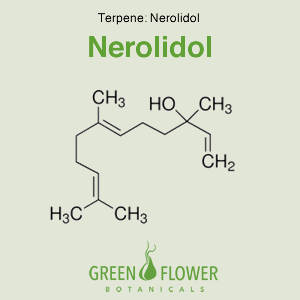
Nerolidol
EFFECTS: Antiprotozoan, Topical Drug Enhancer.
Learn about Nerolidol »
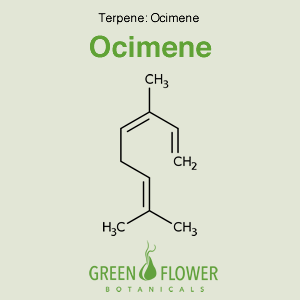
Ocimene
EFFECTS: Anti-inflammatory, Antifungal, Antiviral.
Learn about Ocimene »
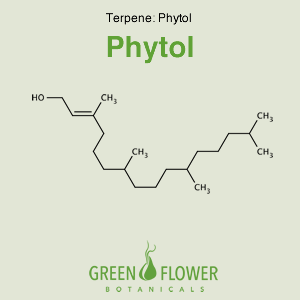
Phytol
EFFECTS: Antischistosomal, Anti-cancer, Hypolipidemic, Antidiabetic.
Learn about Phytol »
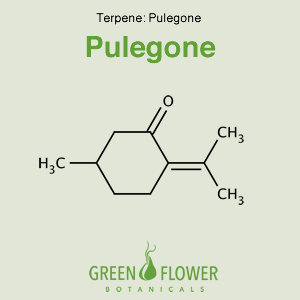
Pulegone
EFFECTS: Expectorant.
Learn about Pulegone »
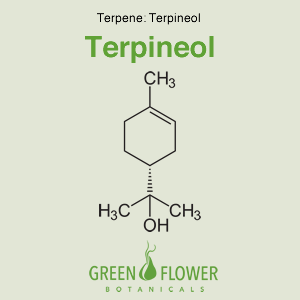
Terpineol
EFFECTS: Antibacterial, Antioxidant, Anti-cancer, Sedative, Anti-inflammatory.
Learn about Terpineol »

Terpinolene
EFFECTS: Anti-bacterial, Anti-cancer, Antioxidant, Sedative.
Learn about Terpinolene »
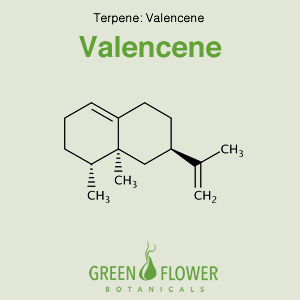
Valencene
EFFECTS: Anti-inflammatory.
Learn about Valencene »
